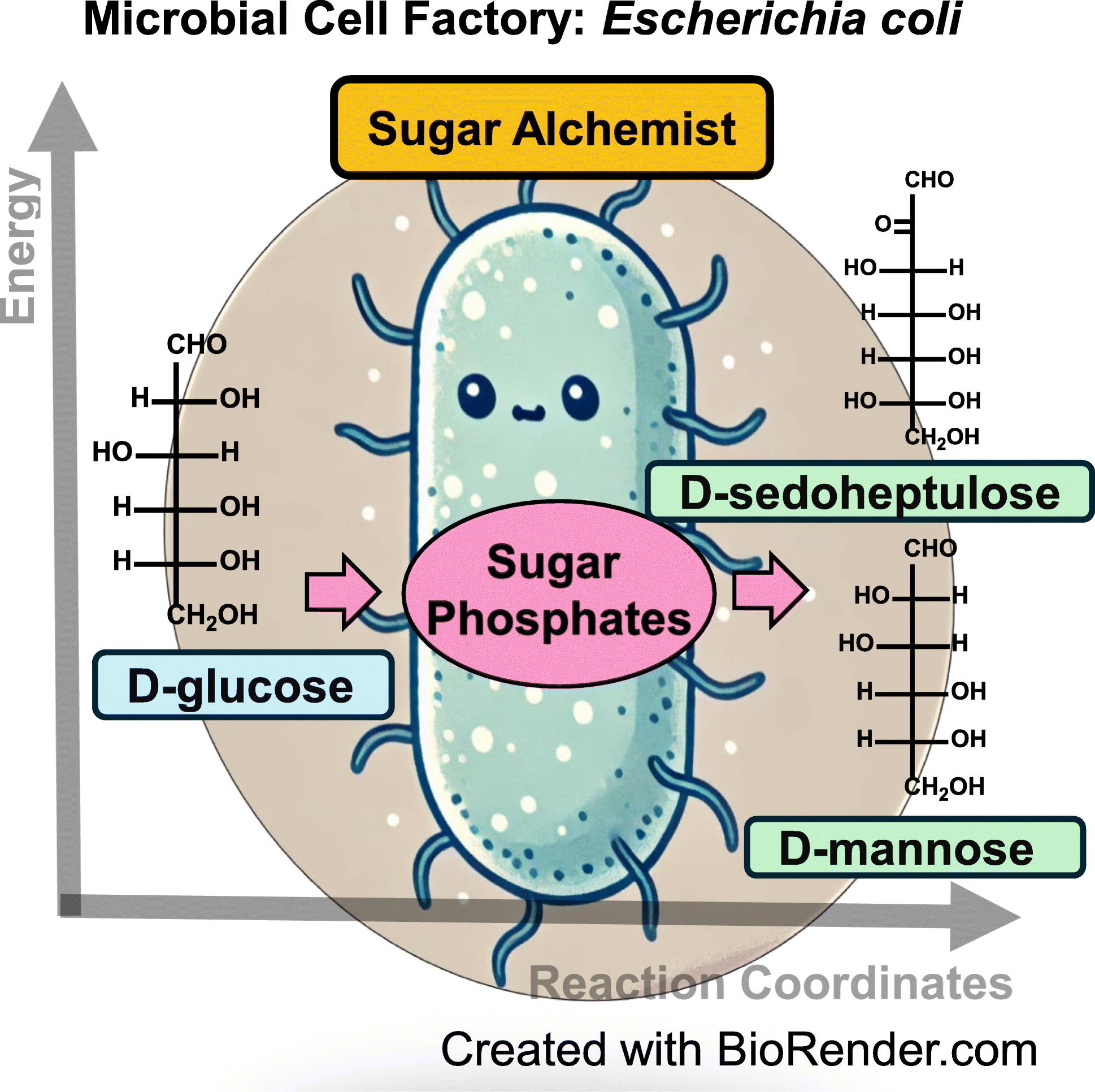Abstract
Rare sugars are valuable for food and pharmaceutical applications. D-Mannose, a low-calorie sweetener, is traditionally produced via chemical extraction from plant biomass, which is unsustainable, while enzymatic methods suffer from low yields due to equilibrium limitations. Here, we demonstrate that Escherichia coli can naturally synthesize D-mannose from D-glucose through a phosphorylation–isomerization–dephosphorylation pathway. We enhanced D-mannose production by deleting competing pathways and overexpressing key biosynthetic genes. Unexpectedly, due to the promiscuous activity of the phosphatase HxpB, which dephosphorylates both D-mannose-6-phosphate (M6P) and D-sedoheptulose-7-phosphate (S7P), the engineered strain also produced D-sedoheptulose, a non-sweet rare sugar that inhibits C6 sugar consumption. Further metabolic engineering improved D-sedoheptulose production. These optimizations enabled the development of a co-production strain capable of producing both sugars with tunable ratios. By leveraging this unique sugar combination, our approach provides a sustainable route to rare sugar biosynthesis and opens new possibilities for functional food design and metabolic regulation.
